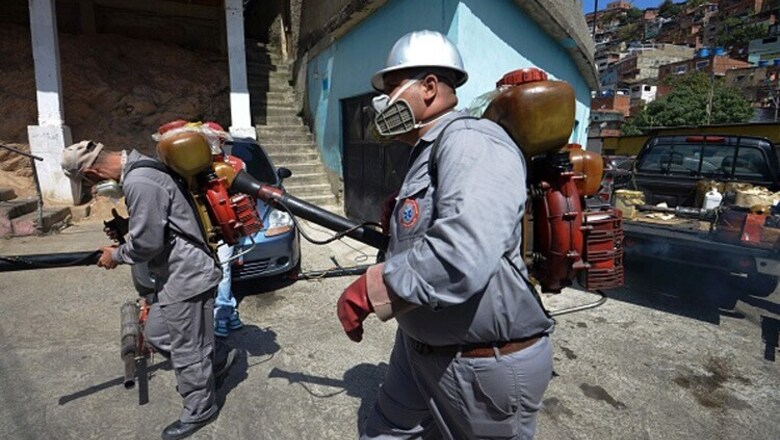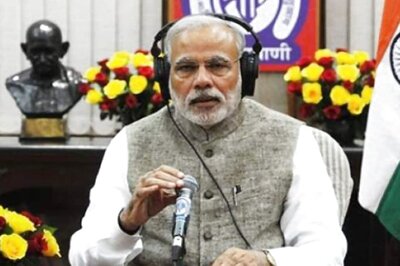
views
Caracas: Yurman Torres is standing in line at the foot of Avila mountain, on the edge of Caracas, to fill a large jug with water, a rare commodity in crisis-hit Venezuela.
The scarcity of water is just one of a long list of headaches for the struggling South American oil giant, but it comes with a particularly nasty risk.
As Venezuelans stockpile water in their homes, health officials warn, they risk fueling an expansion of the mosquito population, and with it the transmission of Zika, the mosquito-borne virus blamed for causing brain damage in babies.
"What can we do? We have to come here every day," said Torres, 36, who fills two jugs every morning before going to work -- just one of the daily hoops he jumps through to find the basic necessities in a country reeling from a deep recession and chronic shortages.
Venezuela, which hardly needed another problem to add to its triple-digit inflation and plunging oil revenues, has registered 4,700 suspected cases of Zika since the virus, which originated in Africa, began sweeping through Latin America last year.
And the official estimate for the number of cases is probably far too low, according to Julio Castro, a doctor and professor at the tropical medicine institute at Central University of Venezuela.
He estimates the real number of cases is at least 250,000. The virus is transmitted by the Aedes aegypti mosquito, the same species that carries yellow fever, dengue and chikungunya.
It is relatively mild compared to that trio, resembling a mild flu with a rash. But since it arrived in Latin America there has been a surge in babies born with microcephaly, or abnormally small heads.
Health officials suspect the birth defect is being caused by expecting mothers catching Zika during pregnancy.
And the water crisis increases the risk, said Castro: mosquitoes breed in stagnant water, and the buckets and cisterns Venezuelans are using to ensure their water supply are ideal habitats within which the insects multiply.
"My daughter-in-law woke up this morning with what appear to be the symptoms," said Maryori Magallanes, a 50-year-old teacher, as sanitation workers fumigated her house for mosquitoes.
"I have a niece who's pregnant. They say there's a substantial risk. They ought to fumigate constantly." The Venezuelan legislature, which the opposition recently wrested from leftist President Nicolas Maduro's party after 17 years, has passed a motion calling for increased efforts to stem the crisis and warning that the country's 18 largest reservoirs are nearing minimum levels.




















Comments
0 comment